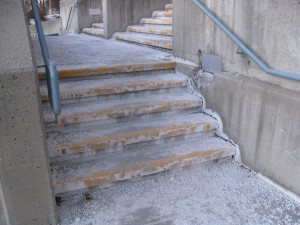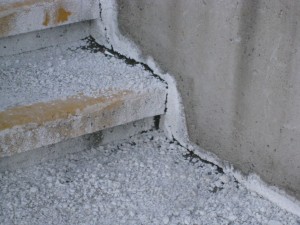The mayor’s “zero means zero” policy has reared its ugly head again. Yesterday’s 24 hours, Sun Media’s free daily newspaper, had a front-page story with the headline “Fuel plan may cut OC service”. Basically, the Eco-Driving Plan’s goal is to reduce the city’s consumption of fuel by 25%. Since OC Transpo accounts for 76% of the total fuel consumption, they’re going to take the bulk of this cut.
The report is scheduled to be tabled at a meeting of the transportation committee next week. It proposes massive cutbacks to OC Transpo, including an across-the-board 25% reduction in service and the elimination of 20 bus routes. Even the core Transitway routes, the 95, 96 and 97, are going to subject to both regular- and peak-hour cutbacks.
Naturally, service cuts like this are going to affect the number of users and thus the revenues.
There would likely be decrease in public transit ridership of between 10% and 15%. This would translate into a loss of 32,000 to 48,000 passengers per day. — the report
This plan, if enacted, will result a huge increase in the number of vehicles on the road, particularly as most people drive to work alone. More vehicles on the roads means more wear and tear to the roads, so they’ll have to be inspected and repaired more frequently. This is going to be a problem since the city recently decided not to increase the number of road inspectors.
And it begs to be asked how this plan is consistent with the four main goals of the City’s Environmental Strategy, which are:
- To be a green city where greenspace is preserved and enhanced
- Development in harmony with nature through better ecosystem planning and design
- A focus on walking, cycling and transit to encourage sustainable transportation choices
- Clean air, water and earth as resource use, waste, emissions and energy use are all reduced.
Clearly, more vehicles on the road is going to result in an increase in emissions and energy use and this plan can hardly be said to “encourage sustainable transportation”. Expect air quality to decrease as the number of vehicles on the road increases.
But traffic and environmental problems won’t be the only result. It will also almost certainly increase unemployment in the city. Fewer bus routes and a reduced level of service means they won’t need as many bus drivers.
Hopefully, this report is an extreme what-if scenario by city staff to drive the point home that the city cannot continue to operate under “zero means zero” cutbacks. I would question the suitability-to-lead of any councillor who would vote to support such an irresponsible plan.



 The
The  I just checked the Environment Canada website and at noon today the temperature was 10C. This means that Ottawa drivers risk running afoul of the by-law enforcement officers if they’re observed idling their cars for more than three minutes if the temperature is 5C or warmer, taking into consideration the windchill. I don’t recall hearing about anyone being charged since
I just checked the Environment Canada website and at noon today the temperature was 10C. This means that Ottawa drivers risk running afoul of the by-law enforcement officers if they’re observed idling their cars for more than three minutes if the temperature is 5C or warmer, taking into consideration the windchill. I don’t recall hearing about anyone being charged since 


 AKA Keeper of Maps, I'm a geocacher who lives in Ottawa, Canada.
AKA Keeper of Maps, I'm a geocacher who lives in Ottawa, Canada.
